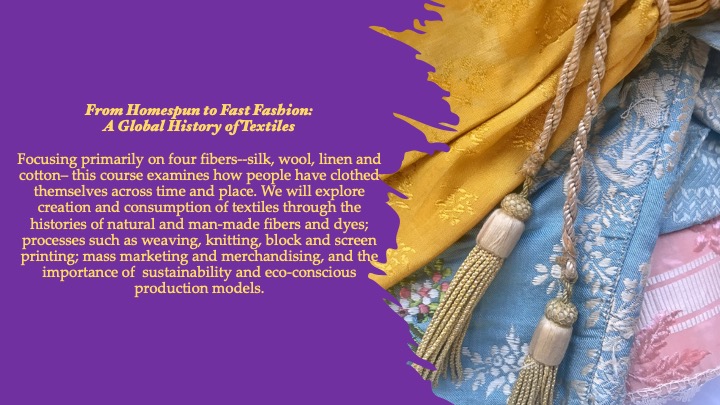Seminar: Historical Expl
Times & Locations
| Start Date | End Date | Days | Time | Location |
|---|---|---|---|---|
| 1/23/2024 | 5/6/2024 | T | 4:10pm - 6:00pm | HORT 422 |
| Final Exam5/15/2024 | 5/15/2024 | W | 1:00pm - 3:00pm | HORT 422 |
Additional Course Details:
From Homespun to Fast Fashion: A Global History of Textiles
Professor Kimberly Alexander
Welcome to History 690/890, a seminar course that introduces you to the craft of history through the study of global textiles.
The course teaches you how historians think and pose questions as well as how they choose, weigh, and interpret evidence in their e?orts to understand and write about the past. Focusing initially on four fibers--silk, wool, linen, and cotton—we will examine how people have clothed themselves across time and place.
We will explore creation and consumption of textiles through the histories of natural and synthetic fibers and dyes; processes such as weaving, knitting, block and screen printing; mass marketing and merchandising, and the importance of sustainability and eco-conscious production models.
You will read, discuss, and write on one text and numerous journal and online articles. In each case, you will analyze how historians constructed their arguments and assessing whether or not you think they successfully made their cases. By the end of this class, you will have developed a set of analytical skills that are essential to historians but can be applied beyond the walls of the university in a range of occupations that require critical thinking, writing, and speaking.
